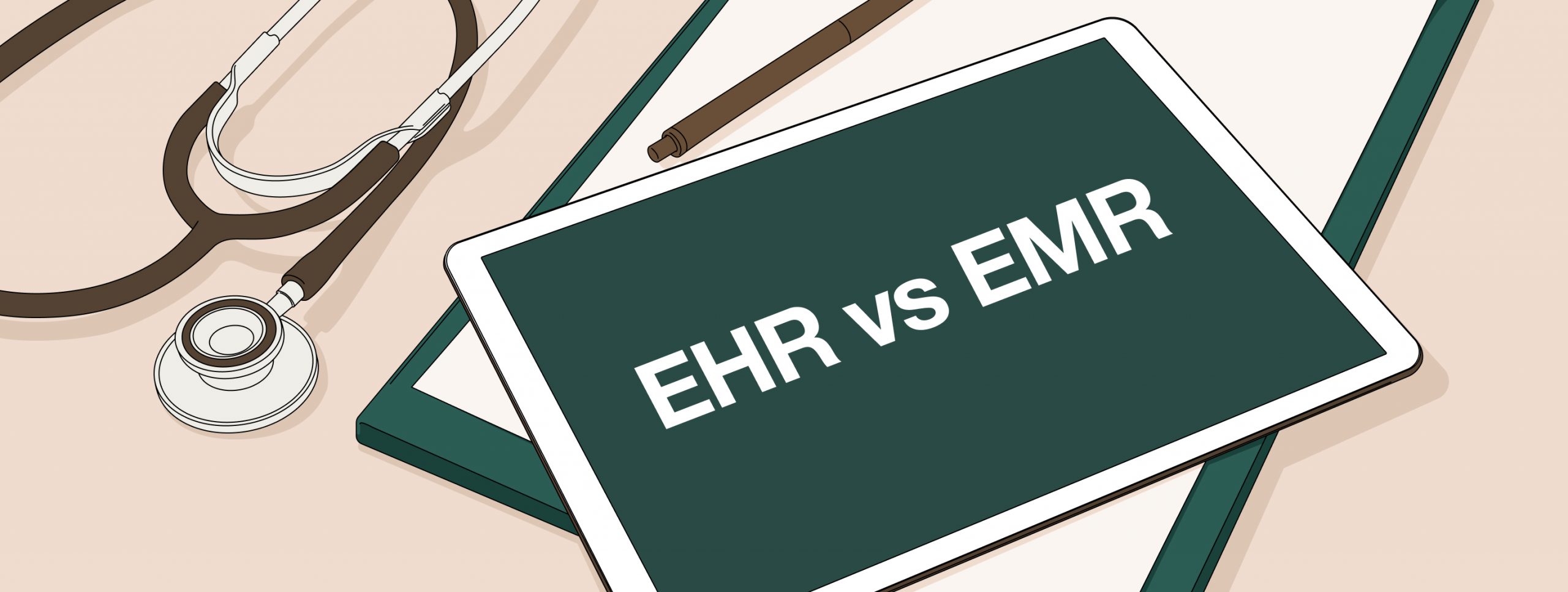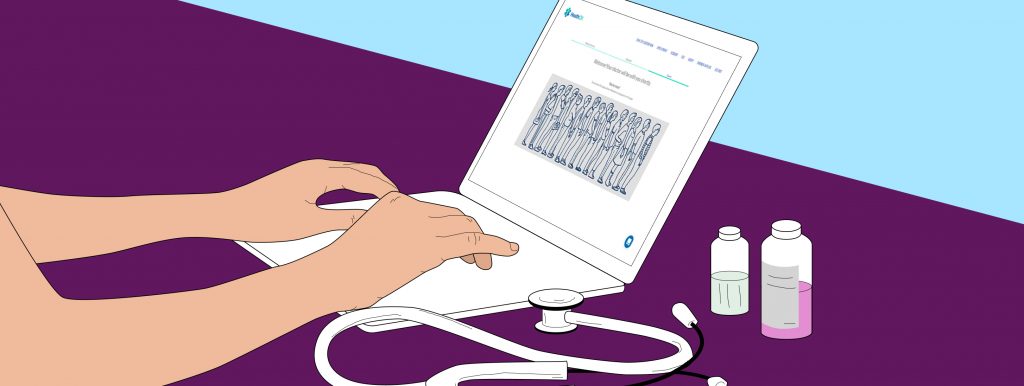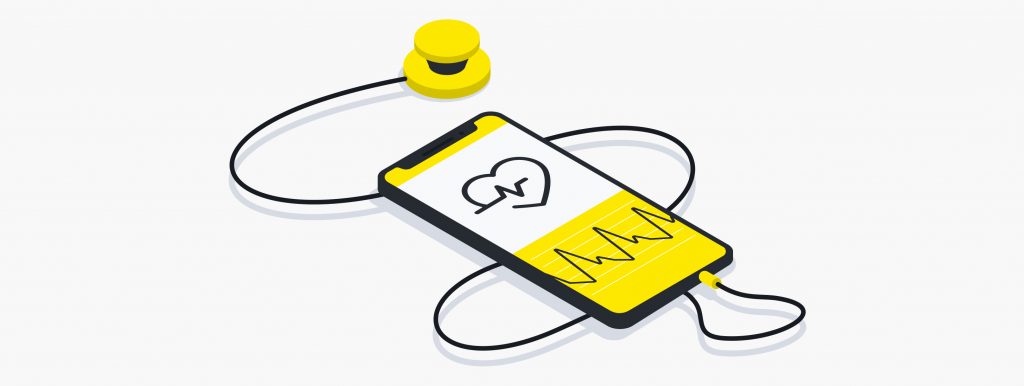Electronic Medical Records (EMRs) and Electronic Health Records (EHRs) are designed to help the medical community improve diagnosis and therefore make patient care more effective. However, despite the popular belief that these two terms are the same, there are considerable differences between them. Let’s get this straight.
What do EMR and EHR have in common?
Today, the use of EMRs and EHRs is becoming increasingly popular: the global EHR market is projected to grow from $30 billion in 2020 to $40 billion by 2025, while the global demand for the EMR market is expected to be around $40.8 billion by the end of 2026.
Electronic health information storage systems save organizations the worry of misplacing, stealing, damaging, or falsifying sensitive data. The EMR and EHR software also help doctors spend less time writing and eliminate errors caused by handwriting legibility problems.
EMR and EHR software help healthcare organizations transform their workflows and improve the quality of care. However, despite the presence of common functions, EMR and EHR are not used as synonyms.
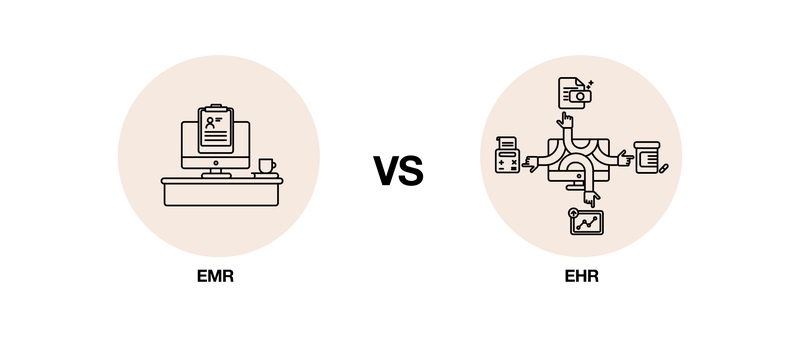
What is EMR?
An Electronic Medical Record (EMR) is a digital version of patients’ charts used by healthcare staff within one medical practice. The system contains health-related information, such as medications, vaccination dates, allergies, laboratory results, doctor’s notes, and much more.
The main difference between EMR and EHR is that the information maintained in EMR is difficult to deduce from a particular practice. It means that if patients want to visit other medical professionals, they will need to print out medical documents containing the necessary information.
Despite the limited capabilities of EMR, the system brings doctors a number of benefits and advantages:
- Collecting data for a certain period;
- Quick check the specific medical parameters of their patients;
- Security of sensitive data;
- Easy determination of which patients should attend medical examinations.
All of the above opportunities provided by EMI contribute to increasing the efficiency of medical services and improving the quality of medical care within the practice.
What is EHR?
EHR stands for an Electronic Health Record and performs the same functions as EMR in addition to much more.
EHR allows the exchange of medical information between different healthcare providers, such as hospitals, pharmacies, insurance companies, etc., regardless of their location. This approach promotes collaboration between healthcare professionals from different organizations, which in turn contributes to the creation of complete patient histories.
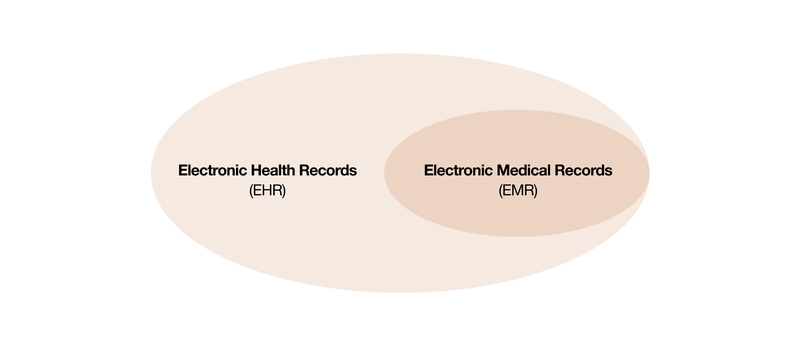
The electronic medical record also allows patients to receive all laboratory results, X-ray reports, etc., as well as independently enter data using online questionnaires and home monitoring devices.
Thus, all the tools provided by EHR platforms allow you to collect all the information about patients in one place and use it as much as possible to make important decisions about patients’ treatment.
Sometimes EHR and EMR systems can be combined to achieve a customer’s goal. For example, MEDsafe, the custom EHR and EMR application developed by Exposit, meets all security standards and allows patients to share personal data in a Telemedicine app in a convenient and secure way.
One letter makes a world of difference
EMR and EHR are software systems that make healthcare more efficient and less expensive. Both of these systems are important for medical professionals, and the choice between them depends only on your goals and needs.
If you need to create and update patient records within one medical practice, EMR will be enough. In order to make medical information available to other healthcare providers, even if they are located in other healthcare organizations, you should turn your attention to the EHR systems.
Exposit creates EHR and EMR platforms aimed at improving healthcare interoperability and providing quality data management. Contact us to develop a system that will meet your goals and fit into the allocated budget.
